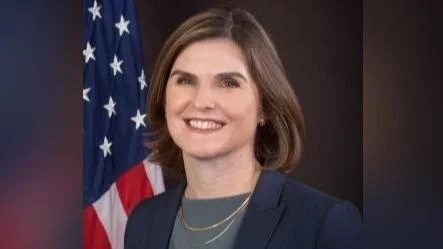Vice President Kamala Harris and former President Donald Trump delivered their final campaign speeches as the 2024 election approached its conclusion. The contest remains closely contested, with a New York Times/Siena College poll from October 25 showing both candidates tied at 48%.
Besides the presidential race, Americans will also decide on congressional control and various ballot measures, including those related to abortion, on Election Day, November 5.
In an October 29 speech at the Ellipse near the White House, Harris criticized Trump's actions during the Capitol riot on January 6, 2021. She claimed that Trump would return to office with an "enemies list," whereas she would focus on a "to-do list." Harris pledged policies aimed at middle and lower-income Americans, such as enhancing child tax credits and expanding Medicare coverage for seniors' home care. She also promised to restore reproductive rights nationwide if Congress sent her such legislation.
Trump announced a new policy supporting a tax credit for family caregivers during an October 27 rally in New York City. In remarks from Mar-a-Lago on October 29, he framed the election as a referendum on immigration and criticized Harris's handling of border security.
Harris countered by urging politicians to address immigration seriously rather than using it for electoral gains. She expressed willingness to work with both parties to pass border security legislation.
Catholic experts have highlighted both agreements and tensions between Harris's and Trump's policies and Catholic social teaching principles. Pope Francis described the U.S. election as choosing between "the lesser of two evils," emphasizing concerns over immigration and abortion policies.
Key battleground states like Georgia, North Carolina, Pennsylvania, Michigan, Wisconsin, Nevada, and Arizona are expected to play a decisive role in determining whether Trump or Harris secures the necessary Electoral College votes.
Apart from the presidential election, voters will decide congressional control and state contests involving ballot referendums on issues like abortion. Analysts predict Republicans may gain Senate control while House races remain closer.
Ballot measures in several states propose open primaries regardless of party affiliation. States with abortion referendums seem likely to approve protections based on recent polls. Nebraska presents contrasting measures regarding abortion rights in its constitution.
Florida might diverge from recent trends requiring a 60% threshold for ballot referendums to pass. A recent survey indicates support for an abortion measure is close but below this threshold. The Florida Conference of Catholic Bishops opposes Amendment 4, which would overturn Florida's six-week abortion ban.
The Catholic Church maintains that all human life is sacred from conception to natural death and opposes direct abortion. Following the Dobbs decision that overturned Roe v. Wade in 2022, church officials have emphasized supporting both mothers and children while addressing factors leading women toward abortions.
Kate Scanlon reports nationally for OSV News covering Washington events.
 Alerts Sign-up
Alerts Sign-up





